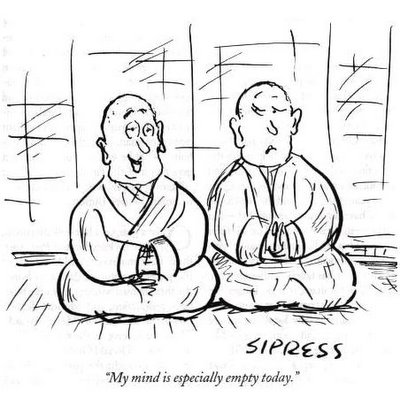

Non-Duality’s No-Self and Antonio Damasio
Non-Duality is the term for a view of the world as not two, but one—not the duality of a person and the world outside him or her, but instead a subjective experience in which the perceiver and the perceived participate with one another in a sense, according to some experiencers, that all is part of incessant movement, a dance, so to speak. There is no experiencer, no experienced. All is experienc-ing. Everything is part of the subjectivity, with nothing outside. The view derives from Eastern belief, principally Hindu advaita, which literally means without duality and from Buddhism (Zen, for example).
A central tenet of non-duality is that self—that which we call our self—does not exist. The evidence is offered by a methodology. The disciple is told to look for his self, and to do so relentlessly. Eventually, he concludes that he cannot find it. Only thoughts, feelings, and sensations are there. These are subjective—part of a world which is wholly conscious and without "external" objects. As for the chair in which he sits, all that is also subjective. The pressure of his body against the seat is sensation. His visual perception of it is also sensation. A sense of self-survival does not disappear. What fades eventually or vanishes abruptly is the autobiographical self, the sensation that "I am angry," or "I am upset," as examples. Sub-personalities remain. The predilection for mystery novels, as an example, does not go away. A liking of certain types of people remains. One still gets angry, etc, but the sensation passes quickly rather than lingering as fixed-cause for the autobiographical self ("They are always doing that to me.") Advaita and Buddhism have no problem with Damasio's arguments.
The reader would be unwise to dismiss all this as so much balderdash. Quite able intellects, including philosphers George Berkeley and David Hume, have been unable to disregard conclusions they reached. Hume, for example, concluded as much about the self—that insufficient evidence can be found for its existence. Berkeley posited that nothing is material, and to be is to be perceived. Esse est percipi. Speaking only about self, Antonio Damasio has a different take on the situation. Damasio, M.D., Ph.D., currently is Allen Professor of Neurology, and Head of the Neurology Department at the University of Iowa. In Descartes’ Error* he offers another way to look at the phenomenon of the self. (* Subtitled, Emotion, Reason, and The Human Brain) As an example of his point, he refers to neural signals from the elbow joint. Of these signals he says, they
Of them, he also states,
With this comment Damasio offers a point of view as to why the self cannot be found when we introspect for it, either through deliberate search or with meditation. We gain a simple inference from his remark. Introspection requires focus, and focus implies search for isolated neural phenomena. The self is not part of isolated phenomena. It is part of a collective. Picture the focused beam of a flashlight. Self cannot be found with such a search.
By again referring to the early sensory cortices in the brain, he elaborates and makes an important observation regarding the self. First, the build-up to his comments on the self, then what he has to say about the self. In the build-up to his points, he explains that the early sensory cortices generate topographical representations. That is, the cortices represent sensory input to other areas of the brain. But if that were the end of it,
He states that they would mean nothing to us, these representations. We would not know what to do with them. He says something would be missing, subjectivity—a subject to make meaning out of them. Something else is needed. Here is his first point:
That is, without a sense of self, they offer no utility for the organism, which must use them to survive in the moment or to plan ahead. It must make meaning out of them.
He lays to rest the homunculus, the little man inside, the intermediary, which somehow bridged Descartes’ gap between mind and the world outside. His second point:
In short, cognition cannot occur without a self to cognize things. Introspect, meditate, all you want but, according to Damasio, don’t use your findings as evidence of no-self. Given his explanation, the attempt to find a self implies cognition at work, with a self involved in the effort. Even though self cannot be found—because cognition involves focus and self is non-focused—the neural self is involved in the very attempt to find itself.
Damasio's thesis in Descartes' Error is that Rene Descartes mistakenly held that thinking can be separated from emotion. That can be found in Mind Shadows at Descartes' Error:Antonio Damasio, Somatic Markers, As-If Loops, and Moral Decision-Making, 11 April 2004.

No comments:
Post a Comment
Note: Only a member of this blog may post a comment.